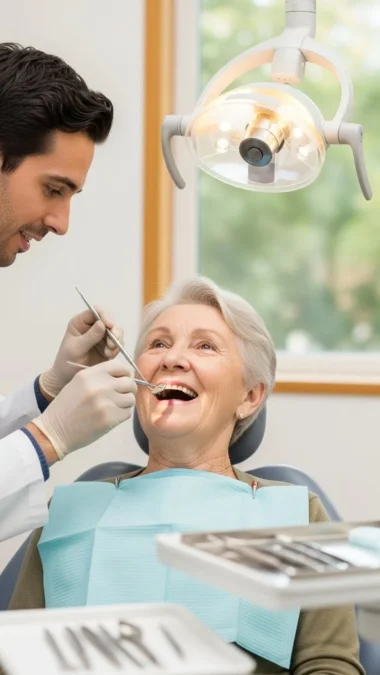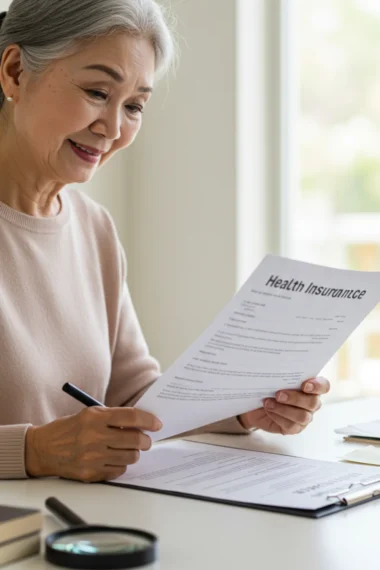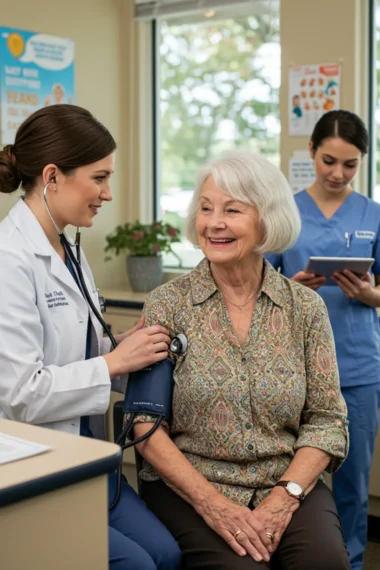Can Senior Citizens Eat Pasteurized Eggs?
Pasteurized eggs offer a safer option than raw eggs—especially for people with weakened immune systems like older adults. But how safe are they really for seniors? And do they provide the same nutrition as regular eggs?
According to the U.S. Food and Drug Administration (FDA), pasteurized eggs are a safer alternative to raw eggs because the pasteurization process kills harmful bacteria like Salmonella enteritidis that can cause serious illness. This is especially important for people over the age of 65, who are at higher risk of foodborne infections due to declining immune function.
What Are Pasteurized Eggs?
Pasteurized eggs are regular eggs that have been gently heated in their shells to a specific temperature (usually 130°F to 140°F or 54°C to 60°C) for a set period. This process kills bacteria without cooking the egg or altering its taste or texture.

Pasteurization doesn’t change the nutritional value of the egg—only the microbial risk is reduced. These eggs are typically labeled with a “P” or “pasteurized” on the carton.
Why Are Seniors More Vulnerable to Foodborne Illness?
As people age, their bodies go through several changes that make them more prone to infections:
- Weakened Immune System: T-cells and B-cells reduce with age, making it harder to fight off bacteria.
- Low Stomach Acid: Seniors often produce less stomach acid, which is needed to kill harmful microorganisms.
- Chronic Conditions: Conditions like diabetes, kidney disease, and cancer further compromise immunity.
- Medications: Immunosuppressive drugs can increase vulnerability.
According to the CDC, adults aged 65 and older account for 40% of hospitalizations and 60% of deaths caused by Salmonella.
Are Pasteurized Eggs Safe for Seniors?
Yes, pasteurized eggs are safe and highly recommended for seniors. The heat treatment eliminates over 99.99% of common pathogens such as Salmonella, without affecting taste or texture. This means seniors can safely consume eggs in any form—including soft-boiled, poached, sunny-side up, or raw in recipes like Caesar dressing or eggnog.

Nutritional Benefits of Eggs for Senior Citizens
Eggs are considered one of the most nutrient-dense foods available. For seniors, they offer an easy and affordable way to get essential nutrients. Here’s what one large egg (50g) provides:
| Nutrient | Amount | % Daily Value (DV) |
|---|---|---|
| Protein | 6.3g | 13% |
| Vitamin D | 44 IU | 11% |
| Choline | 147mg | 27% |
| Vitamin B12 | 0.6mcg | 25% |
| Selenium | 15.4mcg | 22% |
| Lutein + Zeaxanthin | 250 mcg | Eye Health |
Eggs are especially rich in choline, essential for brain health, and lutein/zeaxanthin, which support vision and reduce risk of age-related macular degeneration.
Key Benefits for the Elderly
- Supports Muscle Mass:
Seniors lose about 3–8% of muscle per decade after age 30. Eggs provide high-quality protein (with all 9 essential amino acids) to help maintain muscle. - Promotes Brain Health:
Choline supports memory and cognitive function, crucial for preventing dementia and Alzheimer’s. - Boosts Eye Health:
Lutein and zeaxanthin in eggs help reduce the risk of cataracts and macular degeneration. - Improves Bone Strength:
With 11% DV of vitamin D, eggs help maintain bone density, reducing fracture risk. - Supports Healthy Weight:
Eggs are filling and low in calories, helping seniors maintain a healthy weight.
How Many Eggs Can Seniors Eat Per Week?
The American Heart Association (AHA) suggests that healthy older adults can safely eat one whole egg per day, or 7 per week, as part of a balanced diet.
However, new research shows that dietary cholesterol (found in yolks) has less impact on blood cholesterol than once thought. In fact, many dietitians now recommend up to 2 eggs per day for healthy seniors.
Tip: If cholesterol is a concern, eat one whole egg with added egg whites.
Are There Any Risks?
While pasteurized eggs reduce the microbial risk, some precautions are still important:
| Risk | Who’s Affected | Prevention |
|---|---|---|
| Allergies | Rare in seniors, more common in children | Monitor for symptoms: rash, hives, stomach pain |
| Cholesterol | Seniors with heart disease or diabetes | Limit to 3–4 whole eggs per week, use egg whites |
| Food Safety | Improper storage or handling | Store eggs at ≤ 40°F (4°C); use within 3 weeks |
How to Use Pasteurized Eggs in Senior Diets?
Seniors often prefer soft or easy-to-digest foods. Pasteurized eggs are perfect for:
- Soft-boiled or poached eggs on toast
- Scrambled eggs with vegetables
- Egg salad or deviled eggs
- Protein smoothies (with raw eggs)
- Homemade mayo or Caesar salad (using raw yolks)
- Egg custards and puddings for dessert
Always cook eggs to at least 160°F (71°C) unless they’re pasteurized and used in recipes that don’t require full cooking.
More Opportunities: KOA Senior Discounts
Expert Opinions
- FDA: Advises seniors to only use pasteurized eggs if eating them undercooked or raw.
- Harvard Health: Notes that eggs are a valuable source of nutrients for seniors, especially when protein intake is low.
- USDA: Recommends older adults choose eggs with the USDA shield and pasteurized label for best quality and safety.
Pasteurized Eggs for Seniors
| Feature | Details |
|---|---|
| Safe for Seniors? | ✅ Yes |
| Nutrient-Rich? | ✅ High in protein, B12, D, choline |
| Recommended Intake | 1–2 per day (if healthy) |
| Forms Safe to Eat | Raw, poached, soft-boiled, scrambled |
| Allergy Risk | Low |
| Store At | ≤ 40°F (4°C), use within 3 weeks |
| Best Use | Soft recipes, smoothies, light meals |
Common Myths Debunked
Myth 1: “Raw eggs are unsafe for everyone.”
Fact: Pasteurized eggs are safe to eat raw, even for seniors.
Myth 2: “Eggs raise cholesterol dangerously.”
Fact: Saturated fat has a bigger effect on cholesterol than egg yolks do.
Myth 3: “Egg whites are healthier than whole eggs.”
Fact: Yolks contain most of the nutrients like vitamin D and choline.
What Should You Take Away?
Pasteurized eggs are a safe, nutrient-packed food that should be part of any healthy senior’s diet—especially when prepared properly. They offer high-quality protein, eye and brain-boosting nutrients, and are easy to digest. Just make sure to:
- Buy pasteurized eggs
- Store them safely
- Consume within their best-by date
- Follow health conditions if needed
Whether it’s breakfast, lunch, or a post-workout smoothie—eggs can absolutely be on the menu for seniors!
FAQs
Can seniors eat runny or soft-boiled eggs?
Yes, but only if the eggs are pasteurized. This kills harmful bacteria like Salmonella.
Are pasteurized eggs available in all grocery stores?
Yes, look for brands like Davidson’s Safest Choice or Eggland’s Best Pasteurized Eggs. They’re usually marked with a “P”.
How long do pasteurized eggs last?
About 3–5 weeks when stored in the fridge at 40°F (4°C) or below.
Can pasteurized eggs be frozen?
Yes, but it’s best to crack them into a container and beat them slightly before freezing.










